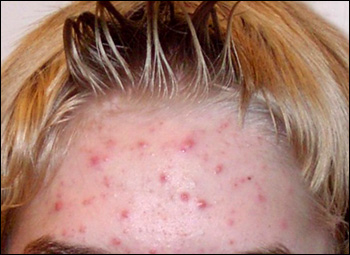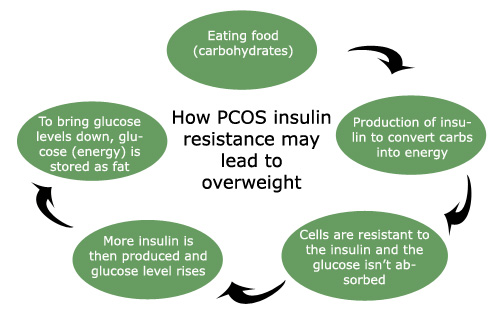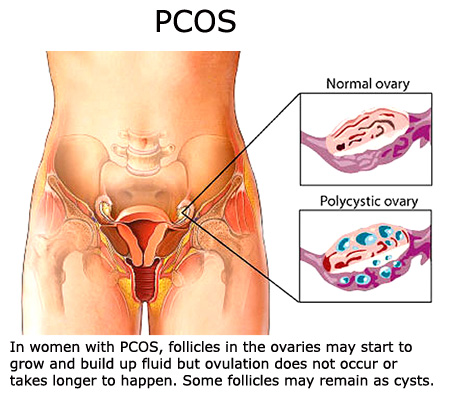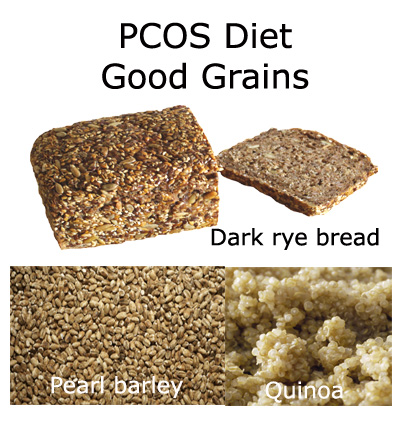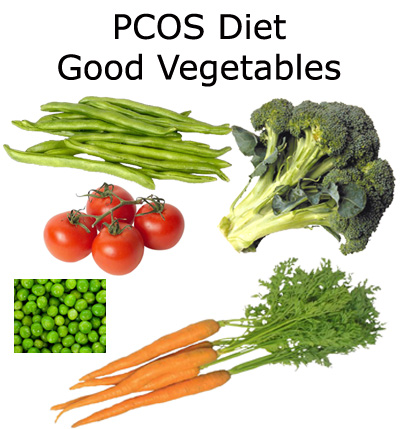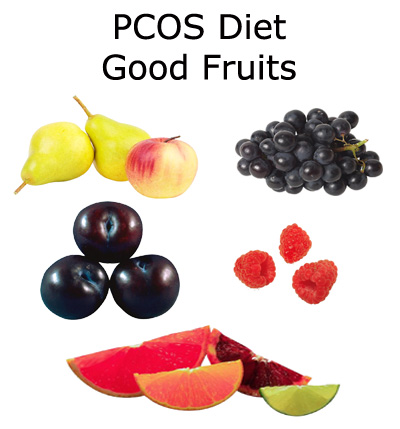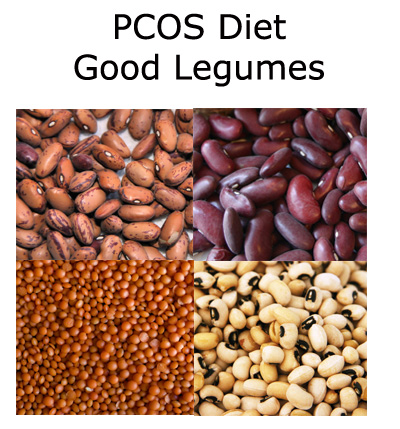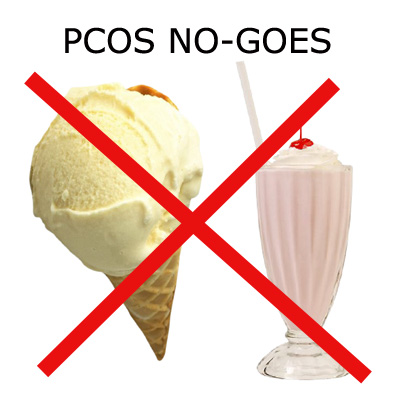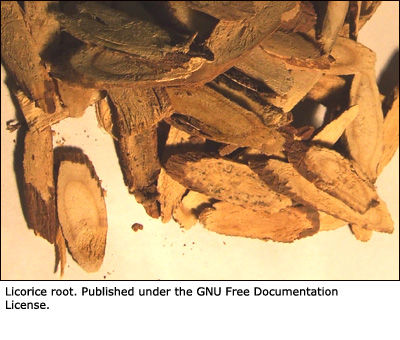Women with polycystic ovary syndrome may benefit greatly from following a pcos diet and making a few simple lifestyle changes particularly regarding food and exercise.
Although there is no permanent cure for PCOS as such, there are many treatments – some natural, some medical – that focus on dealing with the variety of symptoms associated with PCOS. So you see, there are ways to successfully manage the condition.
Read this all-inclusive page on PCOS and find in-dept research-based information about
- What is PCOS?
- The symptoms of PCOS
- PCOS and diabetes or insulin resistance
- PCOS and infertility
- Getting pregnant with PCOS
- PCOS and pregnancy
- PCOS treatment
- PCOS diet
- PCOS supplements
What is PCOS?
A Hormonal Imbalance: Too High a Production of Androgens
Polycystic Ovary Syndrome (PCOS) is a medical condition that affects 10-20 percent of women who are of childbearing age.
Although the cause is unknown, many doctors believe that genetics is an important factor since it seems to run in families. However, many women do not even realize that they have PCOS until they have difficulty becoming pregnant.
Since several of the symptoms can indicate other conditions, it is often overlooked until infertility becomes a problem. In fact, PCOS is the leading cause of infertility in women – mainly because it often goes unnoticed. PCOS often goes under the radar so to speak!
The main issue seems to be a hormone imbalance where excess male hormones, or androgens, are produced.
Although women need a certain level of these male hormones, those with PCOS have so much that it interferes with ovulation and causes other symptoms such as irregular menstrual periods, facial hair growth and thinning of scalp hair.
PCOS can affect menstruation, fertility, hormone production, and even physical appearance.
List of Symptoms of PCOS
There are several symptoms associated with PCOS; however, these can vary from woman to woman so it is important to speak with your doctor about both diagnosis and treatment.
Some of the most prominent symptoms include:
- Weight gain, obesity, or difficulty losing weight: Many women with PCOS also have insulin resistance, which can lead to both weight gain as well as difficulty losing weight.
- Irregular or absent menstrual periods
- Acne or other skin problems such as eczema, skin tags, or dandruff.
- Hirsutism: Excessive hair growth in places typically associated with men, such as the face, chest, back, fingers, and toes.
- Male pattern baldness or thinning hair.
- Ovarian cysts
- Sleep apnea
- Sleep apnea
- Pelvic pain
- Infertility
How PCOS Is Linked to Insulin Resistance
The Role of Insulin in Your Body
Many doctors and researchers believe that there is a strong link between insulin and PCOS.
Insulin is a hormone that is produced by the pancreas and is very important in converting carbohydrates (glucose) to energy for the body to use. When blood sugar levels rise, more insulin is secreted to help balance this influx.
To bring the levels down, any excess glucose (energy) is stored as fat.
PCOS and Diabetes: Too Much Insulin Leads to Too High a Fat Storage
Studies have found that women with PCOS have too much insulin because their bodies have difficulty using what the pancreas produces.
In many cases, a normal level of insulin is actually being secreted, but since the body does not respond appropriately, the pancreas is signalled to make even more.
This high level of insulin tells the body to store energy as fat, which leads to weight gain.
And, this perpetuates a frustrating cycle, since weight gain leads to an even greater level of insulin resistance, which may eventually result in Type 2 diabetes.
Too Much Insulin Leads to Too High a Testosterone Level
There also appears to be a connection between excess insulin and the production of androgens, or male hormones, particularly testosterone.
Although women need a small amount of testosterone, too much can cause an imbalance that leads to irregular periods, acne, weight gain, abnormal hair growth, and infertility.
There are also other serious health concerns associated with insulin resistance, including high blood pressure, high cholesterol levels, heart disease, and diabetes.
Following a diet for PCOS and incorporating regular exercise into your daily routine can effectively manage blood sugar levels and help reduce the risk of developing other diseases. (Read more about the PCOS diet further down this page.)
PCOS and Infertility
PCOS is the most common cause of infertility in women.
It is thought that there are two main reasons for this:
- Ovulation does not occur, or
- Ovulation is difficult to predict since fluctuating hormones interfere with the ovulation process.
The ‘Normal’ Cycle of Ovulation
A woman’s ovary contains tiny fluid-filled sacs called follicles. Each follicle contains an egg.
Every month, during the first two weeks of the menstrual cycle, several of these follicles will begin to mature; however, only one (or possibly more in the case of fraternal twins, triplets, etc.) will remain to reach full maturity.
As the egg grows, the fluid increases, and eventually the follicle will break open and release the egg.
This process is called ovulation.
The PCOS Ovulation Process
In women with PCOS, the ovaries do not produce enough hormones to allow the egg to fully mature.
Follicles may begin to mature, but the stage where ovulation occurs may be postponed to a smaller or larger degree. In some few women ovulation doesn’t occur at all.
In a normal menstrual cycle, ovulation triggers the production of progesterone, which prepares the lining of the uterus for the fertilized egg. However, since ovulation does not always occur in women with PCOS, progesterone is not secreted, and this causes irregular, or even absent menstruation.
Besides the smaller presence (or absence) of progesterone, ovaries affected by PCOS also make male hormones, or androgens, in greater amounts than needed, which further interferes with the ovulation process.
Also, many of the immature follicles may remain in the ovaries as cysts, which is why the condition is referred to as polycystic ovary syndrome. However, the presence of cysts is far from always the case.
Methods of Getting Pregnant With PCOS
Although it can be much more difficult, it is possible for women with PCOS to become pregnant. I mean, I have four children so as you can see conceiving is not always that big a problem 😉
There are many fertility treatments available, but effectiveness may vary depending on the individual and severity of the condition.
Some of the most common treatments include:
1) PCOS Diet
– Eating a Low GI Diet with a Minimum of Fast Carbs (Sugar)
Also called a low glycemic diet or a GI diet which basically focuses around not raising the insulin level unnecessarily when eating (more about this in depth later).
A Danish gynaecologist, Bjarne Stigsby, an expert on PCOS has done extensive research into the relationship between PCOS and the level of sugar food. His overall conclusion is that if women change their diet to a much lower GI than the typical diet of the western world today, they may get pregnant much quicker than what would normally otherwise be the case. In other words, he states that basically you can ‘Eat Yourself Pregnant’!
2) Weight Loss Helps Restore Hormal Balance
Many women find that weight loss will help restore hormonal balance and improve regularity of the menstruation cycle, which increases the likelihood of pregnancy.
3) Metformin
– Makes Your Cells More Sensitive to Insulin
Metformin is a drug that is used quite regularly in the treatment of PCOS because it improves the body’s sensitivity to insulin.
As already mentioned, studies have shown a connection between high insulin levels and the production of male hormones in women with PCOS.
The theory is that by decreasing the amount of insulin secreted, the level of male hormones will also be reduced, and ovulation may resume at a more normal frequency.
Although Metformin is commonly used in patients with diabetes, it is also safe for those who have not been diagnosed with Type 2 diabetes since it works by affecting insulin levels rather than directly interfering with blood sugar.
4) Infertility Drugs
– Clomid Increases FSH and LH
The most frequently prescribed fertility drug is Clomid, which works by increasing the production of FSH and LH.
These hormones are very important in follicle maturation and ovulation. While there has been some success, only about 30-40% of women with PCOS will become pregnant when using fertility drugs alone.
Often, Metformin is also prescribed to help reduce insulin levels and restore regular menstruation. Working together, this combination has a much higher success rate.
If Clomid, or other similar drugs, are not successful, injections of FSH or LH may be given to help stimulate the ovulation process.
5) Ovulation Drilling
– to Reduce Production of Androgens
This procedure uses a small electric needle to send a current into the ovary. This current destroys a tiny portion of the ovary and is sometimes successful in lowering the production of male androgens and restoring more regular ovulation.
6) In Vitro Maturation or In Vitro Fertilization
In Vitro Maturation (IVM) is a process that removes immature eggs from the ovary and allows them to mature in a lab. Once maturation is reached, the eggs are fertilized and implanted into the woman’s uterus.
In Vitro Fertilization (IVF) involves harvesting already mature eggs from the ovary.
In this case, a woman is given medications that will cause the follicles to grow and mature, and when they reach the appropriate stage of maturity, they will be removed, fertilized in a lab, and replanted into the uterus.
The main difference between IVM and IVF is the use of medications that lead to the production of mature eggs. While IVF is the more common procedure, IVM is a great alternative for women who do not respond well to drug therapy.
PCOS and Pregnancy – Potential Risks
In by far most cases when a woman with PCOS to becomes pregnant, she carry full-term, and delivers a healthy baby. However, there may also in some cases be certain risks.
Many factors will play a role, including the severity of the condition, the woman’s general overall health, how well PCOS has been managed, how prepared the woman was for a pregnancy, and the quality of treatment and medical care received throughout the pregnancy.
With proper management and medical care, many issues can be controlled or prevented, thus increasing the likelihood of a problem-free pregnancy.
1) Somewhat Higher Risk of Miscarriage
Some studies have shown that women with PCOS have a somewhat higher risk of miscarriage, however, this can be greatly reduced when women are aware of the risk and take the proper precautions to maintain pregnancy.
2) Higher Risk of Preclampsia and Hypertension
Preclampsia is a condition that involves high blood pressure and high levels of protein in the urine.
Since many women with PCOS already suffer from hypertension, increased numbers during pregnancy create an even greater problem that puts both the fetus and mother at risk.
If the health of the mother or the life of the baby is in great enough danger, then labor may be induced or a cesarean section may be performed.
Women with PCOS are also at a greater risk of suffering from hypertension (high blood pressure) without the complications of preclampsia, so this should be monitored regularly to ensure a healthy pregnancy.
3) Gestational Diabetes Occurs More Often
This is a form of diabetes that appears during pregnancy and disappears following delivery.
Since PCOS is often associated with diabetes, women suffering from this syndrome are at an even greater risk of developing such complications during pregnancy.
If gestational diabetes occurs, women must eliminate sugar from their diet and be monitored closely for any potential problems. Complications include premature birth and oversize babies.
4) Early Labor or Premature Delivery
In some cases, premature delivery may be induced due to other complications, but women with PCOS will often go into early labor on their own.
Today’s technology makes survival of premature births much more likely, but both the baby and mother will be monitored closely.
Promising studies have shown that metformin can be effective in reducing many of the problems associated with PCOS and pregnancy.
The drug appears to be safe to take during pregnancy and there is no evidence that is causes any birth defects. However, it is passed through breastmilk, so if you plan to breastfeed, you should talk to your doctor before continuing treatment.
The List of PCOS Treatment Options
There is no cure for PCOS, but there are several treatments that can help reduce or minimize many of the symptoms associated with the condition.
Since symptoms will vary greatly from woman to woman, treatment will be decided on an individual basis.
Many factors will be considered including symptoms, risk for specific complications such as heart disease or diabetes, and whether or not there is a desire to become pregnant.
Most women find that a combination of lifestyle changes, natural remedies, and medical treatments works the best to help combat the symptoms of PCOS.
It may also take some time and experimentation to discover what works for each individual, and treatments may need to be adjusted as the body ages or goes through hormonal changes.
1) The PCOS Diet
Weight gain or obesity is often associated with PCOS, and this can lead to other health problems such as heart disease, type 2 diabetes, or infertility.
Studies have shown that losing as little as 10% of body weight can help restore ovulation and normal menstrual cycles, improve the chances of pregnancy, and greatly reduce the risk of serious disease.
However, many women with PCOS have tried several diet plans with little success. It can be very frustrating, especially since many of popular diets do not really address issues of insulin resistance, which is the main underlying cause of PCOS weight gain.
From years of study and experimentation, it seems that a low glycemic diet, the basis of a PCOS diet, has been one of the most successful approaches to weight loss for women with PCOS.
The low glycemic diet, or the GI diet, was designed specifically for diabetics as a means of controlling blood sugar and reducing excess insulin production.
Since the weight gain experienced with PCOS is connected to insulin metabolism, the GI diet is a good choice for managing the symptoms.
The basic guidelines of the low glycemic diet include:
- Reduce simple/refined carbohydrates such as white flour, white pasta, potatoes, sugar, desserts, and sugary beverages as these have a high GI ranking and will cause a sudden rise in blood glucose levels and insulin production.
- Eat low glycemic grains such as quinoa, barley, buckwheat, brown rices, dark, heavy bread and millet. These also take longer to digest, so you will feel full longer and be less tempted to snack.
- Eat plenty of vegetables, and if possible, try to consume at least half of them raw.
- Eat two servings of fruit a day, but try to make low-GI choices such as berries, oranges, or cherries.
- Make legumes like beans and lentils a regular addition to meals.
- Choose lean meats, but no more than three times a week. Since hormone imbalances are often an issue with PCOS, if possible, try to purchase hormone free meats.
- Reduce sugar based dairy products, as these raise insulin levels.
- Choose healthy fats such as olive oil, avocado oil or nuts and avoid processed fats or products containing hydrogenated oils.
- Eat protein with fruit and/or other carbohydrates along with healthy fats. Recent studies have shown that MIXING protein with carbohydrates and healthy fats (a portion should then contain one third of each category) can help minimize insulin rises and aid in maintaining healthy blood sugar levels.
While the low glycemic diet has been very successful for many women suffering from PCOS, it does not work for everyone.
Some people have found that a vegan diet is much more effective, and others enjoy results by counting calories or joining a diet club or support group that encourages them to stay on track and helps them to overcome discouragement.
Whatever method is chosen, the key to aim for a balanced diet that consists of mainly low GI foods and is free of processed foods and added hormones.
A Video with PCOS Diet Tips
2) Supplements for PCOS
To complement a low glycemic diet, many women with PCOS find that adding some supplements and/or herbal remedies to their daily regime can be quite effective in easing their symptoms.
While there is no scientific proof that supplements can actually cure PCOS, some natural treatments can help restore balance to the body or improve systemic functions so that the condition also improves.
Certain remedies are shown to be effective in lowering testosterone levels, increasing the likelihood of ovulation, and aiding in weight loss.
Again, keep in mind that each body will responds differently to treatments, so all the supplements listed will not work for everyone. Also, depending on your symptoms, not all herbal or natural remedies will be necessary, or even ideal, for your condition.
Even though these herbs are natural, it is still important to speak with your health care provider to make sure that they are safe for your particular situation.
If you are wanting to become pregnant, these supplements should only be taken until pregnancy occurs, and then discontinued until after delivery unless your doctor tells you that they pose no risk to the baby.
You should also speak with your doctor about the safety of any supplements while breastfeeding.
- Chromium: This is a trace mineral that may help balance blood glucose levels, improve insulin sensitivity, and aid in weight loss. It is often used by diabetics, and has been shown to be quite effective in women with PCOS as well.
- Cinnamon: Cinnamon is a popular supplement used to balance blood glucose levels and control appetite.
- Saw Palmetto: Saw Palmetto is used to improve prostate health in men; however, since women with PCOS often have high levels of male hormones, it can be helpful in reducing hair growth on the face and neck, eliminating acne, and balancing hormones.
- N-acetyl-cysteine (NAC): This is an antioxidant that has been found to help reduce insulin resistance, lower testosterone levels, and increase the chances of ovulation and pregnancy in women with PCOS when combined with other fertility drugs.
- d-Pinitol: This is a popular PCOS supplement and has been shown to control blood sugar levels, suppress appetite, and balance hormones.
- Chasteberry: Vitex, or chasteberry, is one of the most popular PCOS supplements due to its ability to balance reproductive hormones.
- Inositol: Inositol is part of the vitamin B family and is used to reduce testosterone levels, improve insulin sensitivity, reduce acne, and lower unwanted hair growth. In fact, some studies have shown that women can experience up to a 70% drop in male hormone levels when using inositol, which also improves the frequency of ovulation and increases the chances for pregnancy. Some women have also noticed a improvement in their cholesterol levels.
- Vitamin D: Vitamin D deficiency has been linked to insulin resistance, weight gain, liver problems, and irregular menstruation. Many women with PCOS have low levels of vitamin D, and when given supplements, they have noticed weight loss, balanced glucose levels, and the return of normal menstrual cycles.
- Stinging Nettle Root, Licorice Root, Ground Flax Seed: All three of these substances are thought to decrease testosterone levels in women with PCOS, and possibly also help increase the production of female reproductive hormones.
3) Exercise:
Not only will regular exercise help women with PCOS lose or maintain weight, it has also been shown to improve insulin resistance. And, it doesn’t have to be vigorous exercise – just a moderate level of activity can reap significant benefits.
Plus, exercise will improve mood and help increase the chances of a healthy, full-term pregnancy.
Remember, just a 10% loss of body weight can improve the symptoms of PCOS, and exercise is a great way to achieve this goal. If you have a hard time disciplining yourself to exercise regularly, join a gym or walking club so you can socialize while also getting fit.
4) Birth Control Pills
Many women with PCOS have found that taking birth control pills can help restore normal menstrual cycles, reduce male hormone levels, clear acne, and decrease the amount of facial hair.
In most cases, symptoms will return if the pill is discontinued.
5) Metformin
As previously mentioned, Metformin is a drug used to treat people with type 2 diabetes, but it is also often prescribed to women with PCOS.
Since many of the symptoms of PCOS are associated with insulin resistance, there has been a lot of support for using metformin as a form of PCOS treatment, although it is not approved for this use in many countries.
Metformin has been shown to have many benefits, including:
- controls blood glucose levels
- improves cholesterol levels
- decreases testosterone production
- aids with weight loss
- lowers blood pressure
- restores ovulation and normal menstrual cycles
- slows growth of undesired hair (face, neck, chest, etc.)
- increases the sensitivity to fertility drugs and is often used in conjunction with medications such as clomid
6) Surgery
Although ovarian drilling is considered to be a fertility procedure that can restore normal ovulation, it has also been shown to lower the male hormone levels that are often the cause of many other PCOS symptoms.
Unfortunately, these benefits may only last a few months, so the surgery will need to be repeated. Since a electric needle is used to send a current into the ovary, there is a small risk of scar tissue developing, so this will need to be closely monitored.
Ovarian drilling does not deal with all the other symptoms associated with PCOS, particularly weight gain or abnormal hair growth; although some improvements of these conditions may be noticed if the benefits of normal ovulation and male hormone reduction last for an extended period of time.
7) Anti-androgens
These are drugs that are designed to help reduce the production of male hormones, thereby reducing unwanted hair growth and other symptoms caused by an overproduction of androgens.
This treatment is often given in conjunction with birth control pills; however, neither medication can be used while pregnant or breastfeeding.
8) Acupuncture
While the effectiveness of acupuncture for PCOS is controversial, many women have found that it helps restore regular ovulation and improves the likelihood of pregnancy.
Further studies need to be done before a conclusion can be made regarding acupuncture as a treatment for reproductive disorders, but similar to natural remedies, the results are very individualized and, despite criticism, some women are experiencing very positive results.
9) Therapy or counselling
Women with PCOS are at a greater risk of developing anxiety or depression. Struggles about body image and infertility can impact self-esteem and put a strain on relationships. Difficulty losing weight and facing the increased risk of serious conditions such as heart disease or diabetes can be discouraging. And, dealing with pelvic pain and hormone fluctuations can be extremely frustrating.
Some women find that counselling, psychotherapy, or even support groups can help them cope with the condition and teach them how to manage PCOS effectively. Nutritional counselling is also a helpful tool that some people find useful.
10) Cosmetic Procedures
Simple cosmetic procedures such as laser hair removal or electrolysis can help remove abnormal hair and improve confidence or a sense of well-being.
In Summary
PCOS is nothing to be afraid of. It is very normal and it can be managed quite easily and effectively.
Many studies have shown that a low glycemic diet, a PCOS diet, physical exercise and weight loss are the best ways to improve insulin resistance and reduce the symptoms of PCOS.
Also certain supplements have been found to be successful; however, care should be taken when using any herbs or vitamins, particularly if you are wanting to become pregnant or if you are breastfeeding your baby. Other lifestyle changes such as quitting smoking, limiting alcohol consumption, reducing stress, and coming to terms with your body image will also help you cope with PCOS.
Mostly reducing PCOS symptoms is a choice. Your choice! A choice to change your lifestyle to a healthier, more natural one. In that way, it is simple! However, I do know that it is easier said than done. It may take time but if you choose that is what you really want, it is possible to get your body back into balance.
You’re more than welcome to read the other pages on this site. They will be more personal in nature than this one as they will often refer to my own experience with PCOS.
What Would You Like to Read Now?
Achieving PCOS Weight Loss
with a Healthy Low Carb PCOS Diet
Losing Weight with PCOS and Keeping That Weight off: Experiences by a PCOS Mum
Most Frequent PCOS Symptoms: Treating PCOS Naturally via a Low GI Diet
Natural and Medical PCOS Treatment Options Explained
Polycystic Ovarian Disease In-Depth and Understanding PCOS Symptoms
Treatment for PCOS: A PCOS Diagnosis Does not Mean Infertility
What is PCOS (Polycystic Ovary Syndrome): Research-based Information on Symptoms on Treatments
Go to the top of this article about PCOS Diet and Guideline: Natural Treatment for Insulin Resistance Symptoms
Go to the homepage

